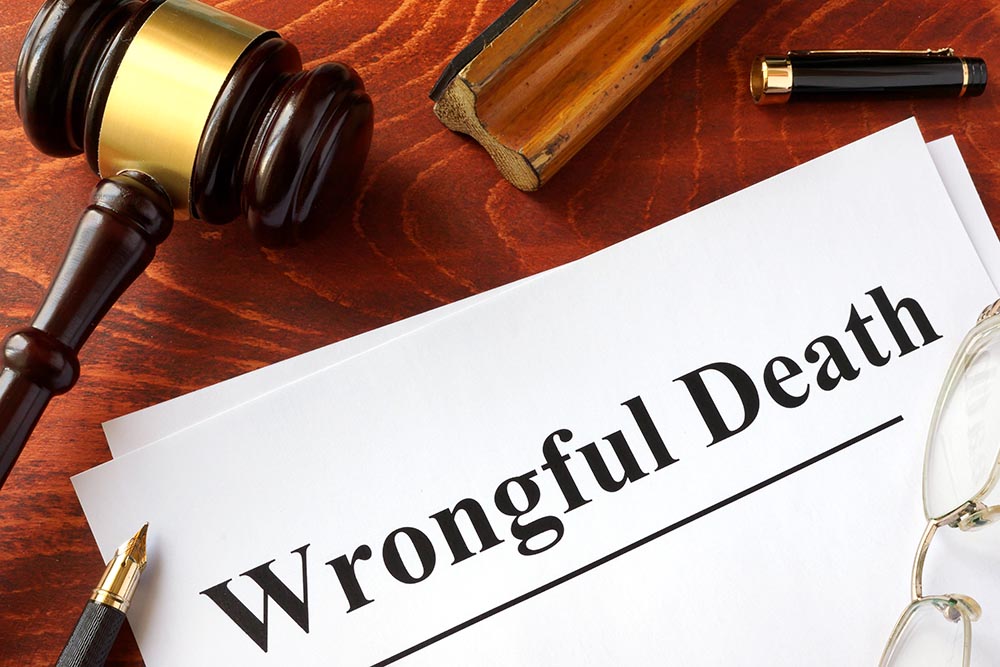The shock of losing a loved one in an untimely manner due to someone else’s negligence affects not only the immediate family members of the deceased but also fiancés, significant others, friends and extended family. Even though many people may suffer loss due to their death, only a limited group of people may file a lawsuit or pursue a wrongful death claim. In the state of Missouri, the law holds that when someone dies due to the negligence of another person – and had they lived they would have had a claim for damages – specific family members of the decedent may be able to bring a wrongful death claim in Missouri on their behalf.
Individuals Who May File a Wrongful Death Lawsuit
There are three classes of people (plaintiffs) who may bring a wrongful death lawsuit in the state of Missouri. These categories are ranked by priority and impose limitations on who may bring a cause of action. For instance, priority is given to the spouse, children and parents of the deceased. Therefore, a brother or sister of the deceased will not be able to file a lawsuit if the deceased’s parents are still living or if the deceased has a living spouse or child. A plaintiff may only sue under the second category if they do not meet the requirements of the first category, and so on. See RSMo 537.080
- First Tier (Class) – The decedent’s spouse, children (natural or adopted), or parents; or, if the children of the deceased are not living then their descendants (i.e. grandchildren of deceased) may file a wrongful death lawsuit under the first category.
- Second Tier (Class) – The decedent’s siblings, or the descendants of the siblings (nephews and nieces) may file a wrongful death lawsuit under the second category.
- Third Tier (Class) – The court may appoint a “plaintiff ad litem” which is a person appointed on the request of the persons who have legal heirs of the deceased.
If multiple plaintiffs exist who are eligible to file a wrongful death claim, one plaintiff file a suit on behalf of all eligible plaintiffs. For instance, if the deceased was married with children and the deceased’s parents are still living, the deceased’s spouse may retain counsel and pursue a claim on behalf of themselves, the children and parents. At the end of the lawsuit or claim once a settlement or judgment is achieved, a court will determine how much the spouse, children and parents receive during the apportionment phase of the wrongful death lawsuit. Any person who falls in one of the proper categories may join the wrongful death lawsuit (“intervene”) at any time. Timely pursuing a wrongful death claim by one heir may ultimately benefit all eligible heirs. This way, each eligible heir in the appropriate class of plaintiffs’ will have their interests protected especially during the paying out phase or apportionment of the wrongful death judgment or settlement monies.
It is important to note that if no eligible heirs exist as listed above, a probate estate must be opened within one year from the date of death and a personal representative may bring a survival action or lost chance of recovery case on behalf of the decedent. However, a personal representative is not allowed to bring a wrongful death action. See RSMo 537.021.
Damages Available in a Wrongful Death Lawsuit
Missouri Statute 537.090 states that the following damages are available for wrongful death claims include:
- Funeral expenses
- Pain and suffering
- Medical expenses
- The value of any service, companionship, comfort, consortium, instruction, guidance, counsel, training or support that was lost when the decedent died.
Some other important points regarding damages include the following:
- Damages for “grief and bereavement by reason of death” are not allowed in Missouri.
- The court will look at the following considerations regarding determining damages: the decedent’s life expectancy, health, talents, habits, character, age and earning capacity.
- Punitive damages against the defendant may be available in extreme and egregious cases.
Contact an Experienced Attorney
While no amount of money will ever bring your loved one back, the reality is that their injury or accident may have caused substantial medical bills, loss of wages, loss of future wages, pain and suffering and other intangible losses as a result of their untimely death. If your loved one died due to someone else’s negligence, you may feel overwhelmed during this time. Contact our compassionate, understanding, and experienced personal injury attorneys at Griggs Injury Law at (816) 474-0202 to help you build a strong wrongful death case on behalf of your loved one.


